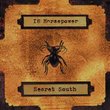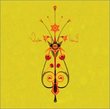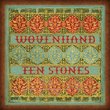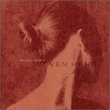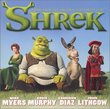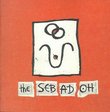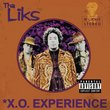| All Artists: Wovenhand Title: Consider the Birds Members Wishing: 1 Total Copies: 0 Label: gl.ho Release Date: 10/12/2004 Album Type: Import Genres: Country, Alternative Rock, Folk, Rock Styles: Americana, Contemporary Folk, Folk Rock, Progressive, Progressive Rock Number of Discs: 1 SwapaCD Credits: 1 UPC: 766481045779 |
Search - Wovenhand :: Consider the Birds
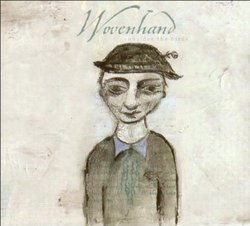 | Wovenhand Consider the Birds Genres: Country, Alternative Rock, Folk, Rock
Whether fronting seminal Denver band 16 Horsepower or venturing off on his own with Wovenhand, David Eugene Edwards? voice is unmistakable. Haunting and even abrasive, there is rarely a dull moment to be found when Edwards... more » |
Larger Image |
CD DetailsSynopsis
Album Description Whether fronting seminal Denver band 16 Horsepower or venturing off on his own with Wovenhand, David Eugene Edwards? voice is unmistakable. Haunting and even abrasive, there is rarely a dull moment to be found when Edwards is behind the pulpit. Diverse in style and delivery, his music is never easy to corner. His latest album under the Wovenhand moniker, Consider The Birds, is no exception. Past influences run the gamut of the bluegrass/folk spectrum. Reviewers like to name-drop Nick Cave & Tom Waits, and have tossed out words like gothic, Americana and even alt-country. In the final analysis, though, no easy tag can be applied to this artist. Six of the album?s ten songs feature Edwards solo, with little more than his fervent voice carrying the tune. Ordy Garrison (drums), Daniel McMahon (piano) and Shane Trost (bass) fill out the sound on the remaining four tracks. The album was put to tape by Robert Ferbrache, a one-time lap-steel player in 16 HP who runs Absinthe Studios. As we?ve come to expect, it?s impossible to not be confronted by Edwards? lyrics, which, in the southern literary tradition of Flannery O?Conner or William Faulkner, are saturated with Biblical allusions. The grandson of a fire-and-brimstone preacher, Edwards channels that old-fashioned tent revival spirit well. Similar CDs
Similarly Requested CDs
|
CD ReviewsOuter Darkness R. J MOSS | Alice Springs, Australia | 02/08/2007 (4 out of 5 stars) "Not sure where the amateur jury sits with this one, or the professionals or,the masses. I'm no advocate of preachy matters, but despite a manic element about David Eugene Edwards, I like the guy's music, and he keeps me interested. This is, and only by small degrees, a more muted product than those familiar with Sixteen Horsepower. I can't believe now, that I came by the group via Slim Cessna. Both writers tackle Christianity, but Slim's spin is ironic and perverse, operating under a C & W umbrella. Edwards is really out there. He sings from a remote place, as if singing will bring him into communion. It's that urgency that I find compelling. There are moments when he casts a similar spell of abandonment that the best Cormac McCarthy writing does. And as uncomfortable as that may be, I find it an invigorating tonic." Consider the Birds; the best from David Eugene Edwards yet R. Newman | 09/02/2005 (5 out of 5 stars) "For fans of Sixteen Horsepower, Woven Hand comes highly reccommended. After their split early in 2005, any of those still in need of their unique, bleak take on the world can look to Woven Hand for more. David Eugene Edwards, the vocalist, songwriter, and banjo/bandoneon player of Sixteen Horsepower formed Woven Hand as a side project while the rest of the band took a break from touring. Now, even though Sixteen Horsepower no longer exists, Woven Hand and Lilium (the band formed by Pascal Humbert and Jean Yves-Tola, the other members of 16 horsepower), are still going strong. Consider the Birds is the best of Woven Hand yet. Look for more excellent records from Woven Hand in the future." Haunting,Starkly beautiful,terrifying... A. Hogan | Brooklyn, NY USA | 06/12/2007 (5 out of 5 stars) "David Eugene Edwards,frontman for the late lamented 16 Horsepower,has fashioned a superb album. CTB [yes,the title is a scripture reference] takes woven hands' previous recordings,along with 16HP energy, and fuses it marvelously.Edwards sits in an awkward position:a believing Christian who does not fit into a niche that often is associaited with alot of "christian music"{UGH}Perhaps because it is; A] Good and B}literate he is blessedly passed over by the pablum machine which drives much of that industry. There are some true standouts on this album:Sparrow Falls, Chest of Drawers, the reworking of the old Lutheran hymn,Down in Yon Forest.Edwards sings with the knowledge of a man who has fought the demons within,failed alot, and knows the dawn and a reckoning is coming. He is rapidly becoming my favorite contemporary artist. This is the best recording I have heard in quite sometime,infintely superior to much of what is churned out. Quite simply, this is David Eugene Edwards masterpiece."
|

 Track Listings (10) - Disc #1
Track Listings (10) - Disc #1